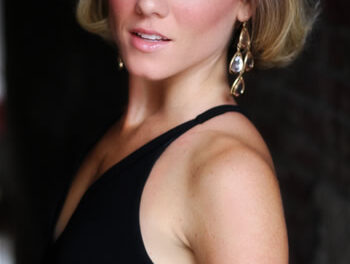I cannot get enough of Handel’s Messiah, and it seems that most of Charlotte agrees with me. A huge, incredibly diverse audience filled Belk Theater to the brim on the evening of December 18, 2013 to hear the highly esteemed Charlotte Symphony Orchestra and Oratorio Singers of Charlotte collaborate on this incredible piece, conducted by Scott Allen Jarrett. Belk Theater was a lovely venue for the performance; the stage is massive, the acoustics are great and a good view of the stage can be had from anywhere in the auditorium.
Before I dive into the performance, a few words must be said for Jarrett’s conducting. Rarely have I seen a conductor with such passion; he was often dancing on his podium along with the music and used body language to cue the mood he sought from his performers. He used no baton, but rather kept his hands free to better convey the desired phrasing and emotion. It was unorthodox but the performance he created was exciting.
The orchestra played beautifully. They followed Jarrett impeccably and were very tight. They sounded rich, full, and well rehearsed. They sounded perfect from the first note to the last. The same can be said for the chorus: they sounded simply lovely. It can be difficult to have a balanced choir when the inner parts (alto and tenor) are so outnumbered by the outer (soprano and bass), but this was not a problem for this ensemble. The balance was great and each part was heard when they had an important line. The chorus and orchestra alike did an excellent job observing dynamic changes and creating beautiful phrases; it seemed almost effortless for them to create a great swelling line one moment and a soft, haunting line the next.
The soloists who performed with the choir sang incredibly. Colin Ainsworth, tenor, had an incredibly bright, ringing, and spinning sound that was really a delight to listen to. He was a dramatic singer, who seemed to almost declaim his verses rather than simply sing them. Kevin Deas, baritone, was just as enticing a performer as Ainsworth. He had a rich, strong, almost earthy tone that filled the auditorium with ease. Tamara Matthews, soprano, had a high, bright, sprightly voice that easily maneuvered melismas. Though it was a light sound, it carried throughout the auditorium and reached every corner of the audience. She was also lovely to watch; she made continuous eye contact with various sections of the audience and had pleasant facial expressions, both which helped keep the audience enthralled and communicated the meaning of the text. Abigail Fischer, alto, had a very rich, deep sound, but her vibrato was too quick; it was not my favorite sound. She, too, was a dramatic singer; she sang with strong emotion and was prone to emphasize her lines with theatrical physical movements, such as clutching at her chest during her aria “He was Despised and Rejected of Men.”
There were some definite highlights in this performance. The first was Deas’s aria in the first part, “The People that Walked in Darkness.” He sang it with upmost mastery and beauty, creating a breath-taking performance. Other highlights include many of the choruses. Some of the best were in the second part, the “Behold, the Lamb of God,” “Surely He Hath Borne Our Griefs,” and “He Trusted in God that He Would Deliver Him.” All of these were performed with strong attention to dynamic markings and wonderful diction. And finally, the “Hallelujah!” chorus must be mentioned. As custom dictates, the entire audience stood for the entirety of the chorus, with some audience members singing along with the choir on stage. It was truly an exquisite moment.
The Charlotte Symphony Orchestra and Oratorio Singers of Charlotte, as per usual, gave a stirring performance. They more than earned their standing ovation.











